Creating a safe space for staff and students
Unitu’s mission is to amplify student voices and enhance student experiences by helping universities close the feedback loop. We believe that collaboration between staff and students is vital in facilitating significant change, and understand that creating a safe environment for constructive dialogue is what makes this collaboration more effective.
Due to the coronavirus crisis, many students and staff have had to adapt to new environments, some far from physical support networks at university. There has been a surge of students and staff using Unitu to retain a dialogue during these unprecedented times, which has created new challenges for us in this academic year. We recognise that this is an incredibly difficult time for all, and have noticed that this frustration is being amplified on Unitu, leading to increased difficulties in opening and maintaining clear communication between staff and students.
We’ve created this document in an active effort to address a challenge which exists not just on Unitu, but on other digital platforms as well. Dialogue and communication plays a necessary role in creating improvement, and we recognise the need for us to be on the forefront of what we preach. With this document, our mission is to provide a platform for constructive dialogue – we seek to be transparent, open, and to actively innovate solutions to a challenging problem through constant feedback and empathy.
Anonymity
When Unitu first launched, we noticed that students were not able to use the platform to confidently voice their opinions. In our first year, we introduced anonymity as a function on Unitu in efforts to increase widening participation in student engagement and thus amplify student voices to improve the student experience. Shortly after anonymity was introduced, we saw a 4x increase in how feedback was being shared and noticed that it was deemed a necessary feature by students in helping them engage in giving feedback. Every year, students highlight that anonymity is important in providing them opportunities to share their feedback.
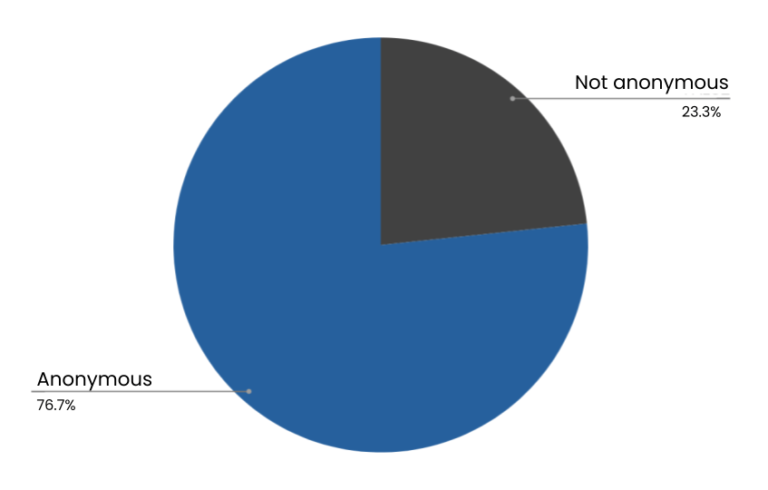
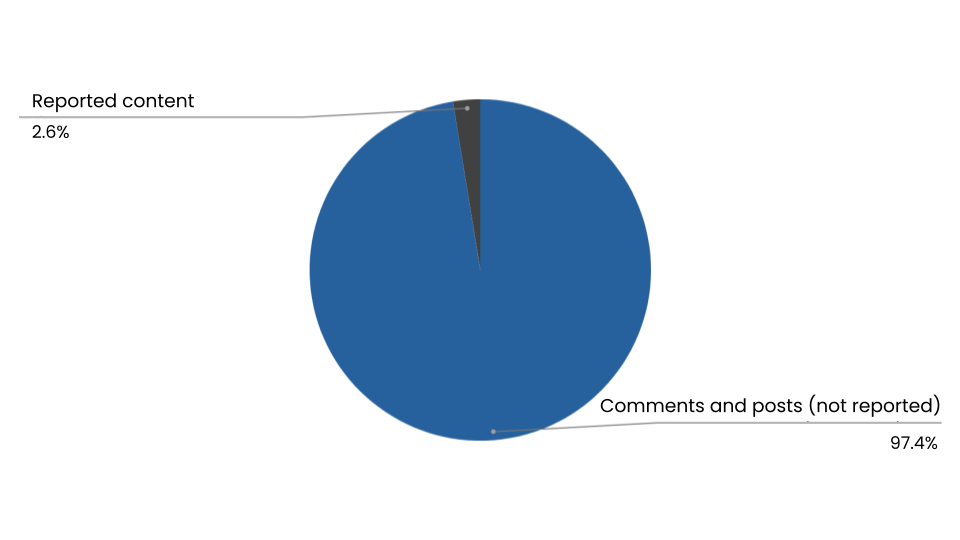
Moderation
While engagement increased, we also noticed that anonymity was occasionally used inappropriately. As a solution, we introduced a feedback moderation system which allows users to report feedback in efforts to regulate the anonymity function. We’ve developed a staff and rep training to support this system in our efforts to assist reps and staff to evaluate feedback against our Content Policy and maintain a safe and productive environment for feedback.
3 Strike Policy
While this system did assist in maintaining a constructive platform for feedback, we noticed that inappropriate feedback was still created due to a lack of impactful repercussions to specific and small minority of individuals on the platform. We saw the need for additional measures to accompany the moderation system, and developed the three strike policy to help regulate feedback. The three strike policy was established in response to requests to disable anonymity across feedback boards and intended to provide consequences for individual instances of inappropriately shared feedback. The three strike policy provides initially a warning to students if they have their content removed (1st strike), if they continue to have their content removed they then risk having the ability to post anonymously removed (2nd strike). A further remove of their content would lead to account suspension (3rd strike).
We recognised that disabling all anonymity would unfairly punish all students, but we emphasised that only specific students needed to be penalised for misuse of the platform, and as such, created the three strike policy, a system which allowed anonymity to continue to exist, but with improved regulation.
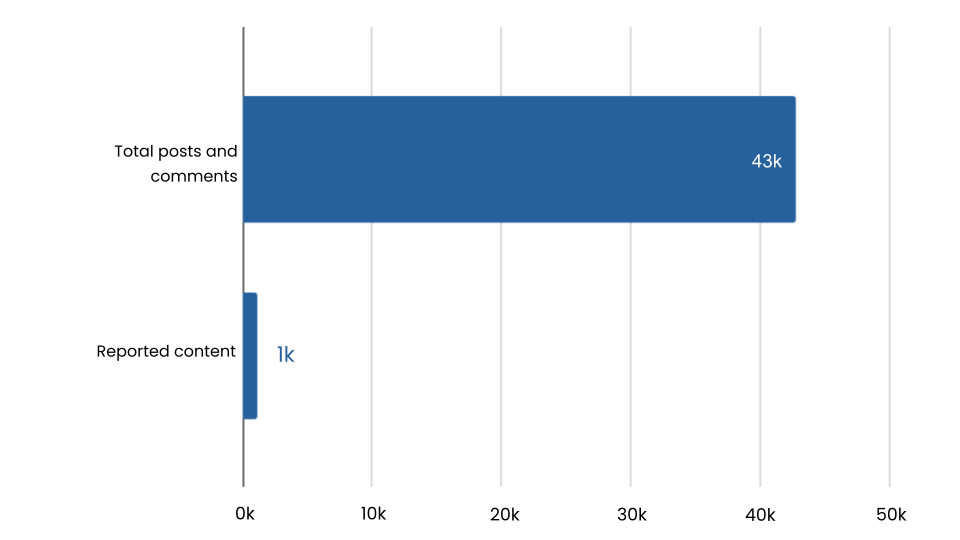
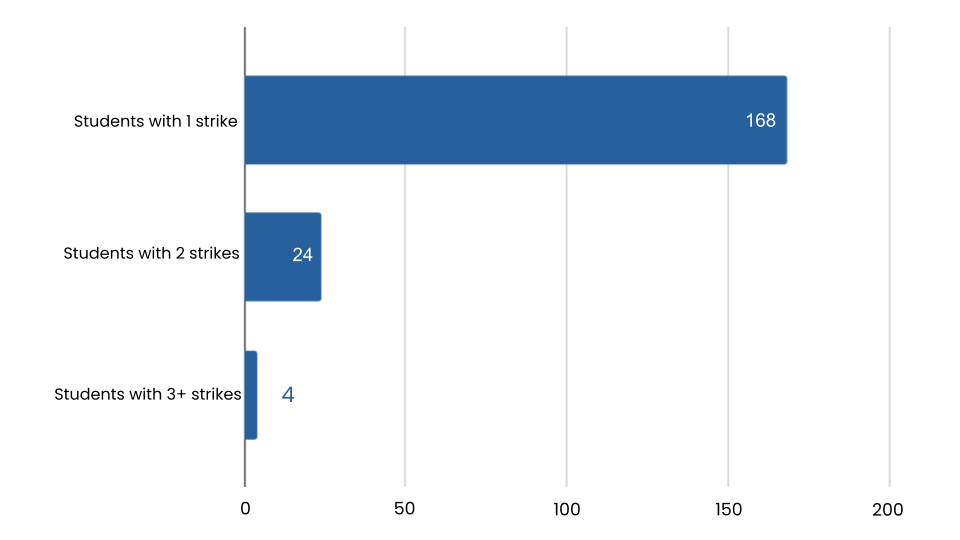
Impacts & Implications of COVID-19
After implementing the three strike policy, we saw a significant improvement in how students would readjust and adhere to the policy in order to maintain their anonymity. To put it into context, out of the 130,000+ students on Unitu, only one student in the past four years has received a third strike. In addition, out of the 10,000+ comments on Unitu we see every year, we receive around 100 reports for inappropriate comments across all universities we work with.
The pandemic forced staff to go online, which was a challenge on top of new teaching responsibilities. The surge in frustrated and anonymous students met with staff members who are not proficient in communicating via online platforms further deepened the rift. Student frustration was also amplified on the platform, which, while valid, was occasionally inappropriate. This did not always warrant a strike as feedback did not always violate the content policy, but were ultimately still contributing to building hostility on feedback boards. We realised that we needed to develop further provisions in feedback creation as strikes were not always relevant in moderating feedback.
Sentiment Checker
Although the three strike policy was and remains impactful and valuable, it did not resolve the problem of students venting their frustrations in a negative tone. Staff could not use the three strike policy, could not regulate the tone of the board. In response to this issue, we developed a sentiment checker to help further regulate content on the platform and help develop student awareness about inappropriate tone. The sentiment checker flags inappropriate content as it is being created on Unitu, which helped decrease the negative tone on the platform as it encouraged users to actively consider how their feedback is being articulated.
Although the sentiment checker is a useful solution for reducing the number of moderation reports, we recognise that we now need to further develop solutions to mitigate the overall greater problem of maintaining users’ freedom to share honest feedback, whilst ensuring that users are doing so constructively. We are actively brainstorming new solutions to help reproduce a safe and brave environment for feedback to be facilitated, whilst maintaining anonymity for students to retain engagement and amplify their voices. We want to keep the anonymity, maintain honesty, but reduce the possibility of receiving harsh feedback.
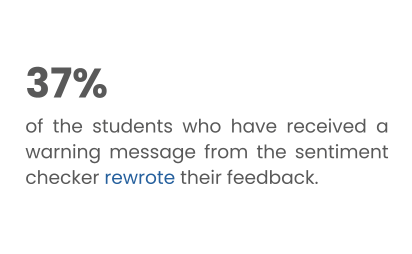

Unitu helps universities to improve the student experience by effectively engaging with the student voice in real time.